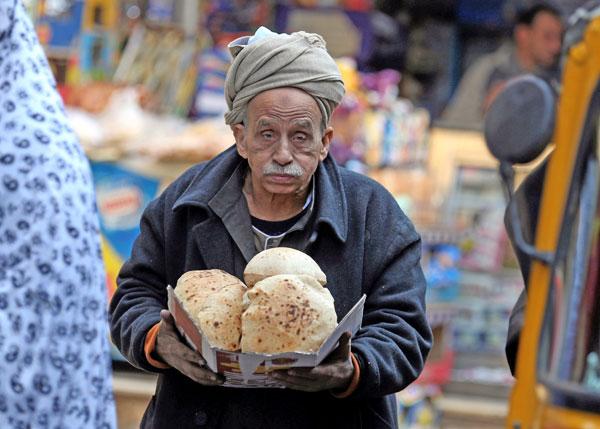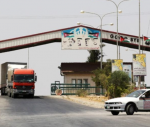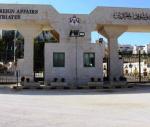You are here
Egypt raises taxes on cigarettes and alcohol
By Agencies - Jul 06,2014 - Last updated at Jul 06,2014
CAIRO — Egypt raised the sales tax on cigarettes by up to 120 per cent on Sunday and doubled the tax on alcohol as part of a series of measures to curb the budget deficit and reform the economy.
The decisions were taken by President Abdel Fattah Al Sisi and published in the state’s official gazette, a day after a subsidy cut that increased the price of fuel and natural gas by over 70 per cent, angering drivers.
Egypt is trying to reduce its deficit to 10 per cent of the gross domestic product (GDP) in the next fiscal year, from an expected shortfall of 12 per cent in 2013/14.
Sisi, who took office last month, has already raised the price of electricity and imposed a 10 per cent tax on stock market gains.
Prime Minister Ibrahim Mehleb pointed out that the electricity move and the new cuts in fuel subsidies would save the government around 51 billion Egyptian pounds ($7.13 billion) this year.
In a meeting with newspaper editors and television channel representatives, Sisi said the decision had to be taken because of the country’s debts, the state-run Al Ahram newspaper’s website reported.
With the economy battered by three years of unrest, successive governments have said subsidies — that meant petrol in Egypt was among the world’s cheapest — must be lifted.
The ex-army chief, who toppled Islamist president Mohammed Morsi in July 2013 before being elected president by a landslide in May, has repeatedly advocated austerity to narrow the budget deficit.
“Whether we wanted to or not, these decisions had to be taken, now or later,” Al Ahram quoted Sisi as saying. “It’s better to face [the situation] instead of letting the country drown.”
The state spends more than 30 per cent of its budget on fuel and food subsidies, in a country were nearly 40 per cent of the population of 86 million hover around the poverty line.
With many fearing that the fuel price rises will impact other prices, Sisi acknowledged that Egypt currently lacked any market controls, but said such mechanisms should be fully operating within six months, the state news agency MENA said.
Cairo bus driver Mohamed Salame who voted for Sisi in the hope he would fix Egypt’s manifold problems, now curses the new president for making life harder by hiking the price of the state-subsidised fuel vital to his livelihood.
With the economy reeling from more than three years of political turmoil, Salame says the reform couldn’t have come at a worse time. It cost him 80 Egyptian pounds ($11.19), double the usual amount, to run his 12-seater microbus on Saturday when the price rise was introduced.
“I have five kids, God only knows how I can pay my rent this month,” said Salame, 44, furious over the move which raised the price of gasoline, diesel and natural gas by up to 78 per cent.
The government’s decision to slash energy subsidies is being applauded by economists who say it is an unavoidable step towards curbing state spending in the country where the deficit is running at 12 per cent of GDP.
But big industrial companies warn the price hikes will erode their competitive advantage.
And on the streets of Cairo, the economic logic is lost on taxi and bus drivers whose anger points to the political risk.
They are already hiking fares, some are charging double for a short ride, underlining the inflationary impact of a decision that seems likely to drive up prices in an economy where cheap fuel helps to suppress prices of almost everything.
Passengers used to paying 2 pounds per bus ride are resisting demands for higher fares, triggering rows in Cairo’s heavily congested streets where tempers already snap easily.
“I was wrong when I voted for Sisi. We are the poor of this country and the decision makers are putting a sword’s blade to our throats,” said Salame.
Sisi, the former army chief who deposed Mohamed Morsi of the Muslim Brotherhood last year, has been signalling the need for austerity. A fifth of the state budget goes on subsidising fuel.
Mehleb sought to justify the cuts in a televised news conference on Saturday, saying they were needed to fix the economy. Some of the money saved would be spent improving education and health services, he said.
“How can I achieve social justice while I am subsidising the rich at the expense of the poor?,” he said, echoing a view that the wealthier Egyptians benefit most from state-subsidised fuel.
Despite the fuel price rise, the government will still be spending a hefty amount subsidising fuel and electricity. The budget for the coming 12 months sees 16 per cent of state spending going on energy subsidies.
Sisi said the price increases were needed to keep the country’s debt crisis from getting worse.
“[The decisions] needed to be taken now or later, so it is better to confront [the problem] rather than leave the country to drown if we delayed longer than this,” he said in comments to a state-run newspaper.
‘Economic war’
The higher prices mean industries that have benefited from cheap fuel will have to pay prices closer to world rates.
The fuel used by cement factories, for example, is now going to cost a third more, industry sources said.
Ahmed Abou Hashima, chief executive of Egyptian Steel, said the step would strip Egyptian industry of a competitive advantage.
“I ask the government... to look at how they can protect local industry, for example by anti-dumping tariffs,” he added.
Some Egyptians, often those who can afford to absorb higher prices, are sympathetic to the government’s move.
Overhearing one driver complaining about the hike, a young man lent through the window of the parked vehicle to defend Sisi.
“We are in an economic war,” he said.
But that logic holds little sway for many in a country hooked on subsidies for decades. Taxi drivers held protests in the cities of Suez and Ismailia on Saturday.
Sayyed Abdullah, a 40-year-old taxi driver, said he became embroiled in a physical fight with one passenger in Cairo who refused to pay the amount he had asked for his ride.
“At first I was optimistic when Sisi won. I hoped there would be security and that we will have work,” he said. “Now I see that the country heading in an unknown direction.”
Related Articles
Egypt's prime minister has sought to justify politically sensitive subsidy cuts on fuel and natural gas which took effect on Saturday, saying they were a necessary part of fixing an economy hammered by three years of turmoil.
The economist behind a plan to unlock at least $380 billion worth of assets from Egypt's black market says President Abdel Fattah Al Sisi must first restore another asset that has depreciated over the years: The trust of a wary public.
CAIRO — Annual consumer price inflation in Egypt's cities soared to a second straight eight-year high in December, hitting 23.3 per cent on
















